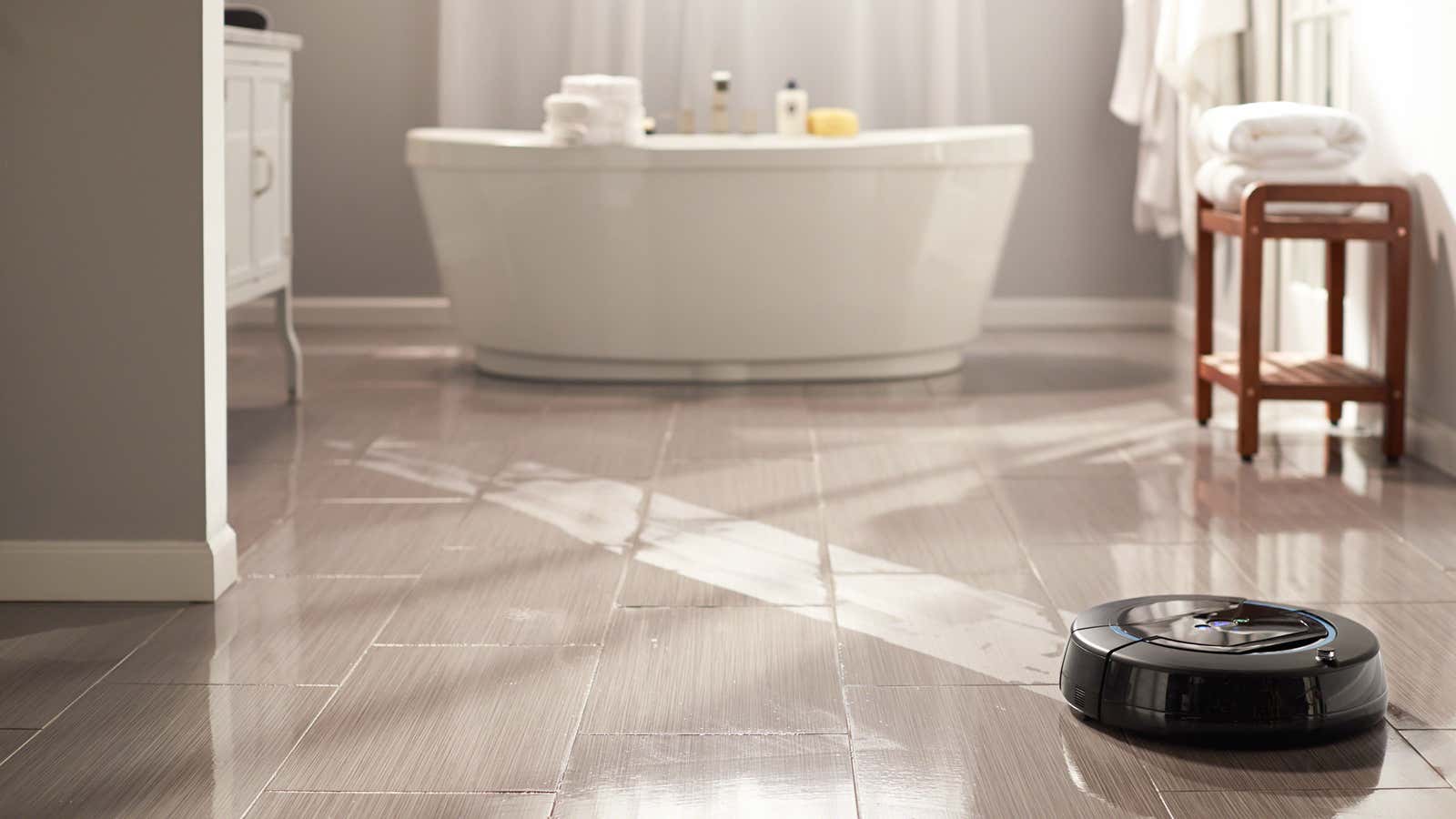For lovers of the robotic vacuum, the lawn-mower equivalent is finally on its way in the US.
US regulators have given iRobot, the US-based company known for its automated vacuum cleaner (the Roomba), the go-ahead to develop and sell a robotic lawn mower. Roomba enthusiasts have been twiddling their thumbs since 2006, when rumors of a lawnbot began to surface. According to Reuters, automated lawn mowers are already popular in Europe, but the debut of the anticipated iRobot mower in the US has been slow thanks to regulatory dawdling by the Federal Communications Commission (FCC).
The regulator, which handles telecom-related matters like online nudity and swear words on television, was tasked with vetting the robot because it communicates wirelessly with beacons. The holdup in approving iRobot centered on the FCC’s rules against operating “fixed outdoor infrastructure” that transmits low-power radio signals without a license.
The National Radio Astronomy Observatory (NRAO) fought iRobot’s waiver request arguing iRobot radio waves could interfere with the astronomer radio waves used to research space. The NRAO proposed a compromise that would allow the lawn mowers to be used in certain areas, while designating some locations “exclusion zones,” according to the FCC report. The regulator ultimately ruled that the NRAO’s concerns about interference were “greatly overestimated,” allowing the mower plans to go forward—albeit with a few extra requirements.
To NARO, the FCC ruling is a loss in the ”larger ongoing struggle to preserve access to the radio for basic science,” the organization tells Quartz. Extremely sensitive radio telescopes are facing a deluge of unwanted interference from consumer goods like wireless routers, cell phones, and digital cameras, a NARO representative says, making research on important matters from global warming to the birth of the galaxies harder.
